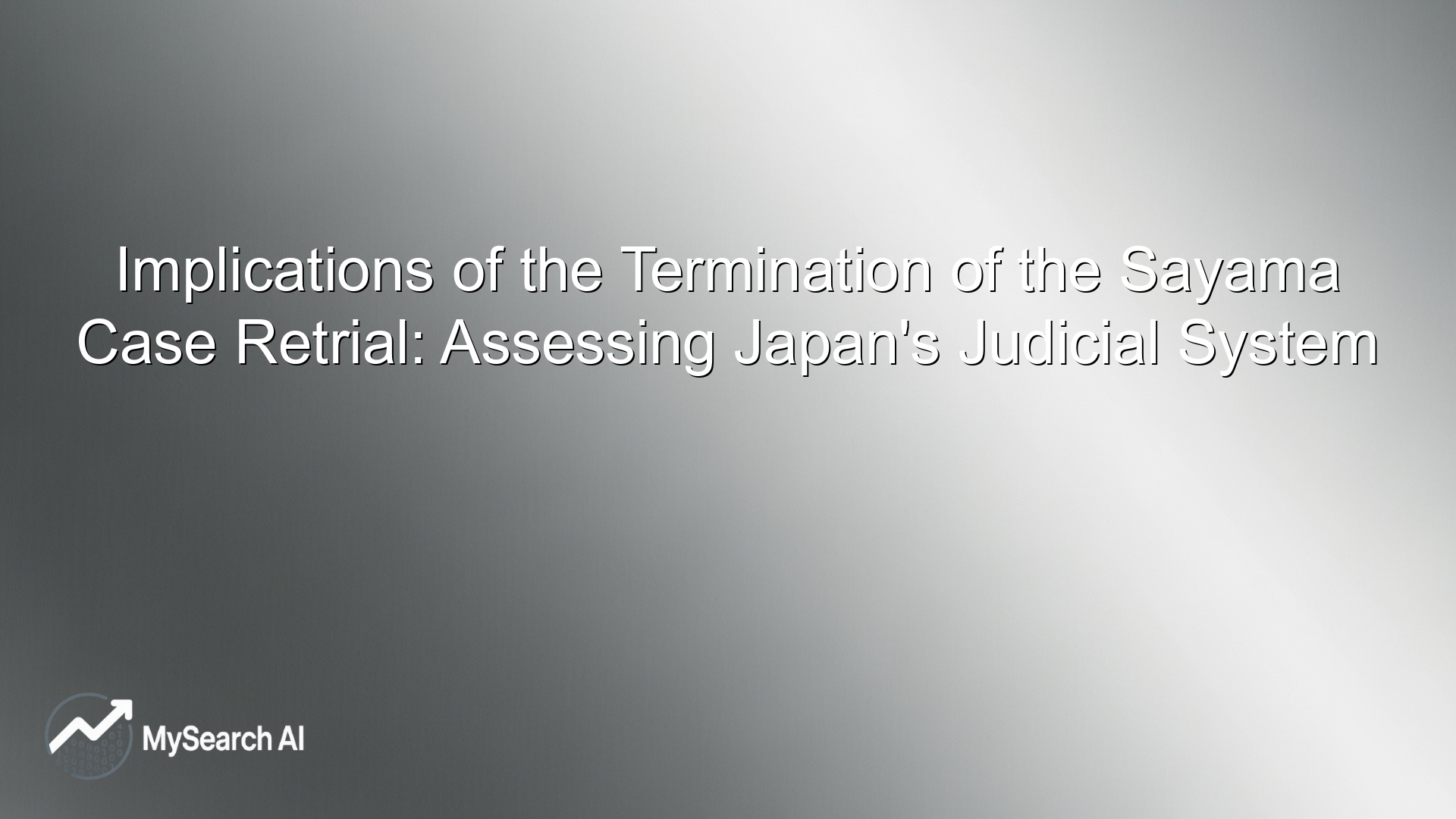Related Articles
Ask anything about stocks
Implications of the Termination of the Sayama Case Retrial: Assessing Japan’s Judicial System
The recent death of Kazuo Ishikawa, a key figure in the Sayama Case, has led to a significant judicial decision in Japan. On March 11, 2025, Ishikawa passed away at 86 while his retrial request was still under consideration. Consequently, Tokyo High Court decided to terminate the retrial proceedings. This development has sparked discussions on the impact on Japan’s judicial system, especially concerning the retrial process.
Background of the Sayama Case
The Sayama Case dates back to 1963 when Kazuo Ishikawa was accused and convicted of murder. Doubts about the fairness of the trial and allegations of forced confessions have surrounded the case for decades. Despite years of appeals and a public campaign, a retrial remained pending at the time of Ishikawa’s death. This scenario highlights long-standing issues within Japan’s judicial practices.
Further insights from Asahi reveal persistent calls for reform throughout Ishikawa’s legal battle.
Impact on Japan’s Judicial System
With the termination of the retrial, Japan’s judicial system is under scrutiny. Critics argue that the process reveals flaws in addressing miscarriages of justice. The closure of this high-profile case without conclusive judgment shows the challenges in revisiting old convictions. The decision has added urgency to debates about how Japan’s justice system handles retrial petitions, emphasizing the need for procedural reforms.
Questions remain about how effectively the system can correct past errors. This underscores the necessity of transparency and efficiency in Japan’s legal processes.
Future Prospects for Retrial Reform
The Sayama Case termination brings attention to potential reforms in Japan’s retrial system. Discussions are focusing on making the process more accessible and just. Legal experts and advocates call for clearer guidelines and policies to ensure timely justice for those claiming wrongful conviction. Changes could streamline how courts handle retrial applications, potentially transforming the landscape for future appeals.
Hokkaido News emphasizes the ongoing debates and potential changes in legislation affecting the retrial system.
Final Thoughts
The conclusion of the Sayama Case retrial marks a pivotal moment in Japan’s judicial history. It serves as a catalyst for examining the country’s legal norms, especially concerning retrials. While Ishikawa’s death has closed one chapter, it opens a dialogue about necessary reforms for ensuring justice. Future legislative changes may enhance the fairness and efficiency of Japan’s judicial system, ultimately strengthening the trust in the rule of law.
FAQs
What led to the termination of the retrial in the Sayama Case?
The retrial was terminated due to the death of Kazuo Ishikawa, whose appeal was still under consideration. His passing on March 11, 2025, prompted the court to close the pending retrial.
How does this case affect the perception of Japan's judicial system?
The termination raises questions about the effectiveness and fairness of Japan's judicial system. Critics argue it shows the need for reforms to address past injustices efficiently.
What are potential reforms for Japan's retrial process?
Reforms may include clearer guidelines for handling retrials, more transparency, and quicker responses to applications to prevent similar situations in the future.
Disclaimer:
This is for information only, not financial advice. Always do your research.



